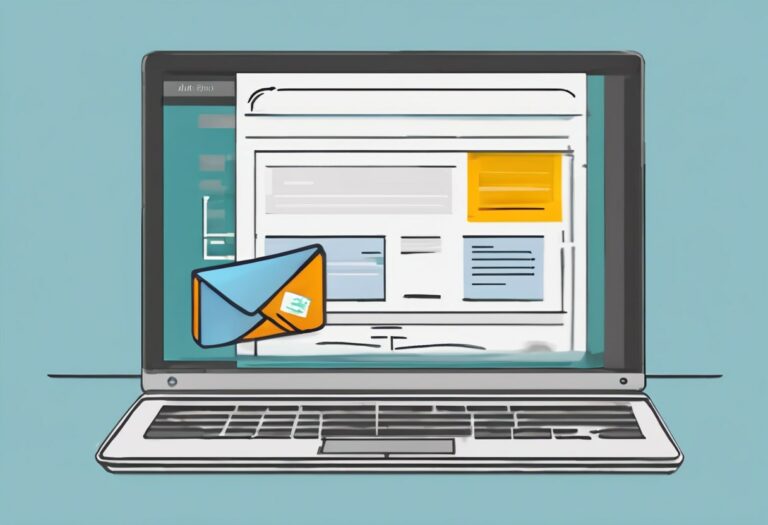10 Other Ways to Say “Stay in Your Lane”

Sometimes, it’s necessary to remind colleagues to focus on their own tasks without sounding rude.
This article provides ten alternatives to the phrase “stay in your lane” that can help maintain a professional and polite atmosphere in your office. Each alternative is explained in detail, showing when and how to use it for the best effect.
Is It Polite to Say “Stay in Your Lane”?
This phrase “stay in your lane” is generally considered informal and can be seen as impolite or dismissive in professional or formal settings. There are usually more polite and formal ways to convey the same message.
This phrase is best used with individuals you have a casual relationship with, where its use might be seen as friendly advice rather than a stern directive. “Stay in your lane” might be more acceptable in informal emails, direct messages, or verbal conversations in casual settings. It’s less suited for formal letters, official documents, or any professional correspondence where tone and respect are paramount.
Here’s an example:
Greetings Team, As we dive into the project details, let's remember the importance of focusing on our own tasks. Sometimes, we might feel tempted to spread our wings, but it's crucial for the project's success that we stay in your lane and trust each other's expertise. Thanks for understanding, Alex
Pros:
- Conveys a clear message to focus on one’s responsibilities.
- Can strengthen teamwork by encouraging trust in others’ roles.
- Useful in informal settings to dispense quick guidance.
Cons:
- Can be seen as dismissive or rude, especially in formal contexts.
- May impair relationships if the recipient takes offense.
- Lacks nuance and might not be taken seriously.
Given its inherent informal tone and potential for misunderstanding, someone might want to consider using an alternative phrase in a professional setting. This is because synonyms and alternatives can convey the same message more gently, fitting the communication style of diverse situations and maintaining respect among colleagues.
10 Other Ways to Say “Stay in Your Lane”
Here are ten professional alternatives that convey a similar message to “stay in your lane,” appropriate for workplace emails:
- Focus on your expertise
- Concentrate on your designated tasks
- Keep to your assigned responsibilities
- Maintain your area of responsibility
- Adhere to your specific role
- Preserve focus on your work domain
- Stick to what you know best
- Limit yourself to your specialty
- Attend to your primary tasks
- Remain within your area of expertise
1. Focus on your expertise
This alternative is cleaner and more professional compared to “stay in your lane.” It gently encourages a person to use their special skills and knowledge without sounding dismissive. It’s a polite way to remind someone of their strengths and implies trust in their abilities.
This phrase works well in a professional environment where each team member has a unique set of skills. It is best used in emails or during meetings where you want to remind someone to utilize their strengths without stepping outside their role. This makes it suitable for communications where clarity and respect are crucial.
Example:
Hi Mark,
As we go into this project, we think it's crucial to focus on your expertise considering the complexity of the tasks ahead.
Best,
Emily
2. Concentrate on your designated tasks
This alternative puts emphasis on alignment with assigned duties, making it more professional and formal than the original phrase. It directly communicates the need to pay attention to one’s own tasks without appearing rude.
It’s ideal for situations where clarity on project roles is needed, especially in emails or meetings that discuss task delegation. This alternative offers a polite reminder without offending, which makes it preferred in more controlled or structured professional settings.
Email example:
Dear Team,
In our efforts to meet our project deadlines, let's each concentrate on your designated tasks. This approach ensures efficiency and effectiveness in our workflow.
Kind regards,
Samantha
3. Keep to your assigned responsibilities
This version brings a formal and professional tone, suggesting individuals stick to the responsibilities given to them. It’s softly commanding, steering clear of any negative implications associated with the original phrase.
This wording is well-suited for professional environments where roles are clearly defined but need reinforcement, especially through email or in internal communications. It’s respectful and ensures messaging retains a polite and clear directive.
Here’s an example:
Hello Team,
For the upcoming project phase, it will be essential for each of us to keep to your assigned responsibilities for smoother coordination.
Regards,
Oliver
4. Maintain your area of responsibility
This synonym brings a level of sophistication and formality to the instruction to remain focused on one’s tasks. It implies a degree of trust and respect for the recipient’s capability in handling their duties.
This alternative fits well in written communications within a professional setting, particularly in memos or emails where the goal is to reinforce the importance of individual contributions to collaborative projects. It maintains a polite tone while ensuring the message is clear.
Email sample:
Dear Colleagues,
As we move forward, please remember to maintain your area of responsibility. This way, we can all contribute effectively to our team goals.
Warmest regards,
Laura
5. Adhere to your specific role
This message is professional and underscores the importance of sticking to established roles within the workplace. It communicates expectations without crossing over to informality, ensuring the respectfulness of the workplace culture is upheld.
Suitable for formal correspondences such as official emails and policy documents, this phrase ensures that the recipient understands the importance of their position in the larger team dynamic. It’s a polite way of saying that everyone has a crucial part to play.
Example:
Hi Julie,
With the upcoming audit, it’s vital for everyone to adhere to your specific role to ensure a streamlined process.
Best,
Derek
6. Preserve focus on your work domain
This alternative is notably professional and encourages recipients to stay engaged with tasks directly related to their area of proficiency. It’s a sophisticated way to communicate the idea of staying within one’s limits without sounding blunt.
It’s particularly effective in professional emails or discussions focusing on project assignments or task delineation. This phrase is polite and respectful, making it appropriate for conversations where detailed division of labor is discussed.
Email example:
Dear Carlos,
As we distribute tasks for the next phase, it's important for everyone to preserve focus on your work domain.
Thanks,
Anne
7. Stick to what you know best
This phrase is less formal but remains professional and polite. It implies that a person’s expertise and knowledge are valued, encouraging them to utilize their strengths for the benefit of the overall project.
When used in a professional context, particularly in internal team emails or conversational exchanges, it reassures team members of the importance of their specific skill sets. It’s suited for settings where a gentle nudge is needed to remind individuals of the value of their contributions.
Here’s an example:
Hi team,
As we plan our strategy, it will be crucial for each of us to stick to what you know best.
Cheers,
Ben
8. Limit yourself to your specialty
This is a straightforward professional alternative, emphasizing the importance of concentrating efforts in areas one is most skilled at. It’s a polite yet clear way to guide someone to focus where they can contribute the most.
It is especially suitable in communication related to task assignments or when discussing project strategies via email. It reinforces the idea that honing in on one’s expertise is beneficial for team success, using a respectful tone.
Email sample:
Hello Claire,
During this project phase, we recommend to limit yourself to your specialty, ensuring we use our strengths to the fullest.
Best regards,
Tom
9. Attend to your primary tasks
This alternative leans towards a professional, formal tone, directing individuals to focus on their main responsibilities. It makes the expectation clear without deviating into informality, maintaining a respectful atmosphere.
This is particularly effective in a workplace setting when assigning tasks or reminding team members of priorities through emails or project management tools. It’s a polite, direct reminder that helps keep projects on track.
Example:
Dear Team,
To ensure we meet our deadlines efficiently, we recommend to attend to your primary tasks.
Sincerely,
Natalie
10. Remain within your area of expertise
Like the others, this phrase is professional and formal, explicitly advising individuals to operate within their knowledge and skill set. It’s a respectful way to emphasize the value of specialization.
Best used in formal emails or meetings, it subtly reminds individuals of the significance of focusing on what they are best at, within the context of team dynamics and project goals. It’s a polite approach to ensure everyone’s efforts are effectively aligned.
Email example:
Hi Rebecca,
In preparation for our upcoming review, let's each remain within your area of expertise, to contribute most effectively to our team's success.
Best,
Jeremy
Final Thoughts
Choosing the right words matters a lot in a professional setting. Using a phrase like “stay in your lane” might not always come across well. The alternatives listed above provide more respectful and clear options to communicate similar messages.






